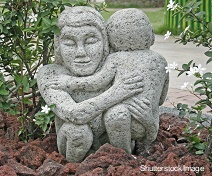
Wendy Priesnitz
writer, editor, changemaker
 Wendy Priesnitz writer, editor, changemaker |
| Home About Writing Blog |
The phrase “OK Boomer” is having its day, both on social media and in offline situations. My first reaction when I saw it a while back was to laugh it off as one of those pithy statements and memes inherent to social media, where nuance goes to die. I saw it as a sarcastic way for people under a certain age to express their justifiable anger and frustration at the state of world – as many generations have done before them. In that, it’s successful. But the more I thought about it, the more bothered I became.
At age 69, I’m part of the so-called “Baby Boom” generation, born at a time of relative economic prosperity but also a variety of troubling social problems. And I’m aware that many in my generation, like those before and after us, believe that we know better than the one before us and complain about young people. In fact, the rebellious, anti-establishment attitudes that we “Baby Boomers” developed, and that some of us have retained and others have forgotten, were a rejection of the values of our early 20th century parents. While I don’t take the “OK Boomer” meme personally, I do think its popularization is problematic.
Where is the harm in it? First of all, I’ve always been against broad generalizations and stereotypes based on age. In this case, I think the meme enhances the generational divide rather than fixing it. But, most importantly, I think it ignores the fact that class and economics are the problem its users are trying to address, rather than age. It’s useful to explore the origin and purpose of labels like “Baby Boomer,” “GenX,” and “Millennial.”
As I’ve written elsewhere, we humans like to divide ourselves (and our children) into groups based upon many things, including age; social class and income; formal education; gender, ethnic, and nationalist identities; and religion. Sometimes, some of those categorizations can be helpful. But, as often as not, this slicing, dicing, and labeling just results in people being treated as monolithic groups, rather than as individuals – with all the associated problems and resulting prejudices. Assigning common characteristics to a large group of diverse people who happen to be of similar age can also confirm preconceived prejudices.
Organizing people into generational cohorts assumes that people of the same age share similar attitudes, motivations, and behaviors. To whom is that of value? Marketers, of course, who want to understand how to reach potential customers.
A whole industry is based on naming and describing the various generations so that political parties, product designers, and marketers can supposedly finetune their offerings. This is not a new endeavor; essays about the commonalities and differences among generations go back to the 19th century. William Strauss and Neil Howe are said to have pioneered the modern concept of generational cycles and coined the term “Millennials” in their 1991 book Generations, which, unfortunately, focuses only on white middle-class teens. (Interestingly, Steve Bannon, co-founder of the right wing Breitbart News and former adviser to Donald Trump, is said to be a prominent proponent of their work.) They have also reportedly made a lot of money from consulting related to the idea.
However, as many of us have noticed about the advertising fed to us on social media, this work often results in the creation of false stereotypes. For instance, contrary to the stereotype of rich, condescending, environment-destroying, job-hogging boomers, many older people – including some who served in the military or are environment and peace activists – are living in poverty, with little or no healthcare or pensions, working at minimum-wage jobs their bodies can no longer handle, or languishing in understaffed and sometimes dangerous care homes.
Aside from the age-related issues, these are some of the same conditions of concern to those using “OK Boomer” as a taunt. Such is the peril of assuming uniformity among those born within a two-decade time period – a simplistic notion that often is wrong. There are huge differences of wealth and power within the various generational categories, particularly, as I’ve noted, among the “Baby Boomers.” But it works both ways, of course, with the younger generations also suffering from stereotyping and stigmatization – as evidenced by their “OK Boomer” pushback.
Rather than being about age, it looks to me like the problems that are affecting both young and old are structural in nature, and the generational approach misses the mark. The problems can be traced to people of a variety of ages working in corporate boardrooms, private jets, and government offices creating, implementing, and defending policies that favor the rich and greedy. They’re purposefully lowering wages and destroying jobs, cutting public services, hiking tuition, increasing and protecting corporate profits, creating pollution, and generally trashing the planet. (And yes, some of the culprits are most definitely “Baby Boomers.”) To make matters worse, corporate media benefit from prolonging the shelf life of generational squabbles by highlighting the complaints of all the generations.
Unfortunately, this emphasis on age rather than class plays generations off against each other in a sort of competitive, divide-and-rule way. So, my hope is that all ages can lay down the memes so that we can start working together to solve what are proving to be humanity-destroying problems.
copyright © Wendy Priesnitz



 |